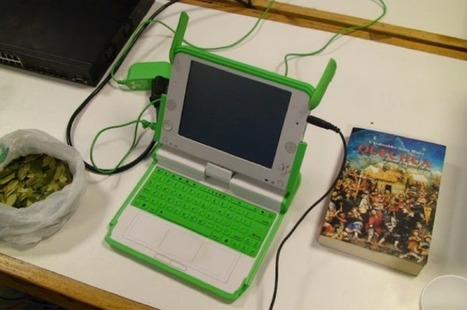Standing atop a high stage at the Interactive Technology Camp in Lima, public school teacher Eleazar Mamani Pacho flips through several slides featuring the rural elementary school where he works as principal and teacher. The images introduce the Aymara students and indigenous community in the Andean village of Lacachi where he teaches among to his audience, a mixed crowd of elite international policy makers, global education experts, and urban corporate representatives of IT firms sponsoring the education-oriented event – from Microsoft, to Intel and Telefónica. Organized in 2012 by Peru’s Ministry of Education in collaboration with the World Bank and US Embassy at the University of Lima, the two-day event drew over 1000 participants to Peru’s capital city to hear presentations on the latest innovations in educational technologies from a range of stakeholders, institutional actors, and individuals – including educators like Pacho, the only speaker to represent rural schools at the event. A few the images he lingers on showcase his students in the regional dress and dance performed during traditional festivities in Puno, others feature them in groups over the dry flat fields of Puno’s Altiplano. And others feature students working on class activities developed by Pacho which had earned him the invitation to travel from Puno to participate in the global event – those developed as classwork and digital pedagogy for the XO Laptop, the centerpiece of the MIT-launched global One Laptop Per Child initiative.
Research and publish the best content.
Get Started for FREE
Sign up with Facebook Sign up with X
I don't have a Facebook or a X account
Already have an account: Login
on peer-to-peer dynamics in politics, the economy and organizations
Curated by
jean lievens
 Your new post is loading... Your new post is loading...
|










